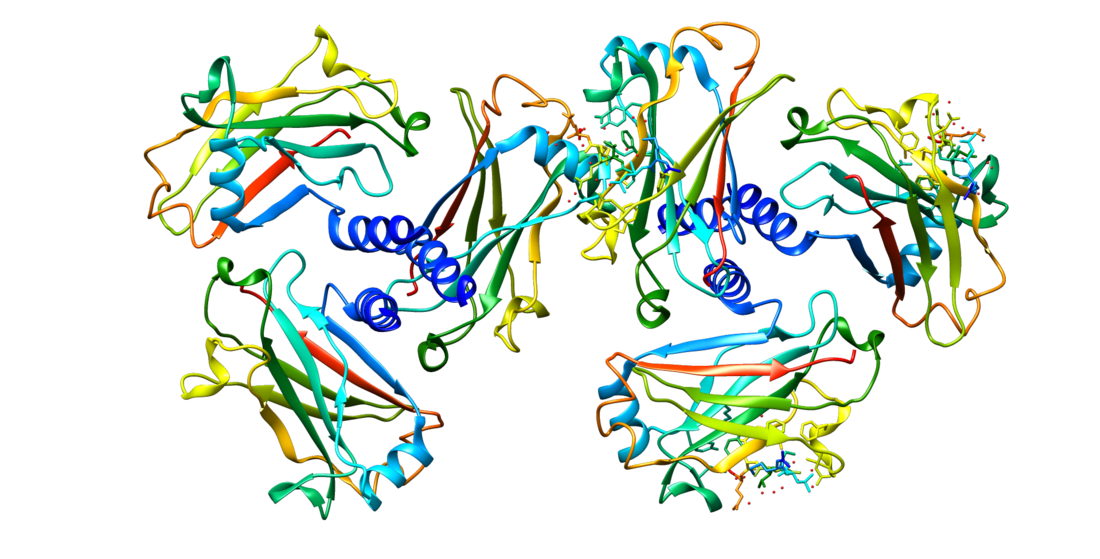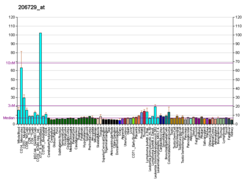Top Qs
Timeline
Chat
Perspective
CD30
Mammalian protein found in humans From Wikipedia, the free encyclopedia
Remove ads
CD30, also known as TNFRSF8 (TNF receptor superfamily member 8),[5] is a cell membrane protein of the tumor necrosis factor receptor family and a tumor marker for Hodgkin lymphoma and anaplastic large cell lymphoma.
This article's lead section may be too short to adequately summarize the key points. (November 2016) |
Remove ads
Function
This receptor is expressed by activated, but not by resting, T and B cells. TRAF2 and TRAF5 can interact with this receptor, and mediate the signal transduction that leads to the activation of NF-kappaB.[6] It is a positive regulator of apoptosis,[7] and also has been shown to limit the proliferative potential of autoreactive CD8 effector T cells and protect the body against autoimmunity.[citation needed] Two alternatively spliced transcript variants of this gene encoding distinct isoforms have been reported.[5]
Remove ads
Clinical significance
CD30 is associated with anaplastic large cell lymphoma. It is expressed in embryonal carcinoma but not in seminoma and is thus a useful marker in distinguishing between these germ cell tumors.[8] CD30 and CD15 are also expressed on Reed-Sternberg cells typical for Hodgkin's lymphoma.[9]
Cancer treatment
CD30 is the target of the FDA approved therapeutic brentuximab vedotin (Adcetris). It is approved for use in:
- Hodgkin lymphoma (HL) (brentuximab vedotin) after failure of autologous stem cell transplant (ASCT)
- HL in patients who are not ASCT candidates after failure of at least 2 multiagent chemotherapy regimens
- Systemic anaplastic large cell lymphoma (sALCL) after failure of at least 1 multiagent chemotherapy regimen[10]
- Primary cutaneous anaplastic large cell lymphoma (pcALCL) or CD30-expressing mycosis fungoides (MF) who have received prior systemic therapy[11]
- Various types of CD30-positive T cell lymphomas[12]
Brentuximab vedotin is also currently being studied in and recommended for treating:
- Various types of CD30-positive B cell lymphomas[13]
- CD30-positive cases of the NK cell lymphoma, extranodal NK/T-cell lymphoma, nasal type[14]
Interactions
CD30 has been shown to interact with TRAF5,[6] and TRAF2.[6][7]
References
Further reading
External links
Wikiwand - on
Seamless Wikipedia browsing. On steroids.
Remove ads






